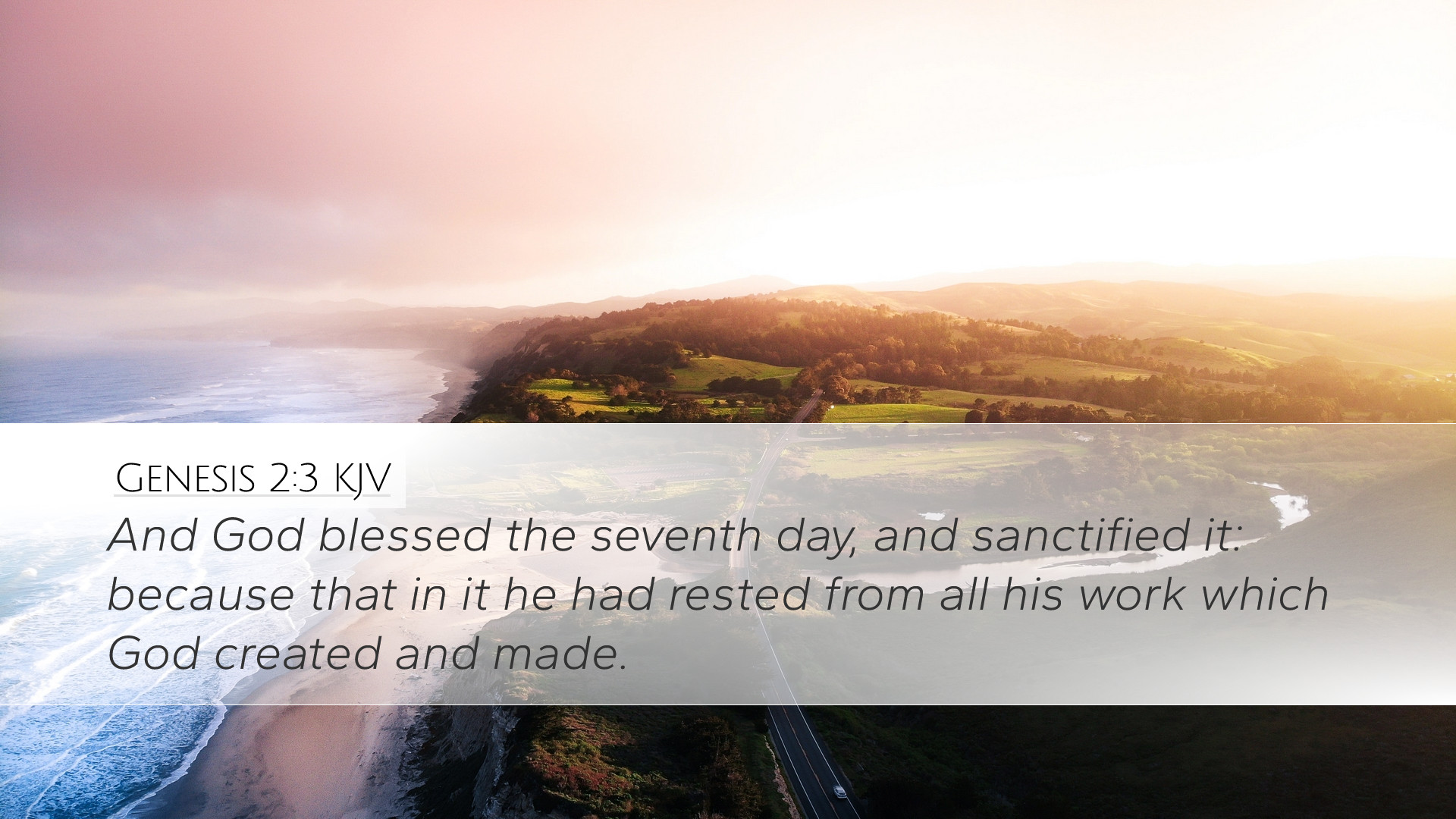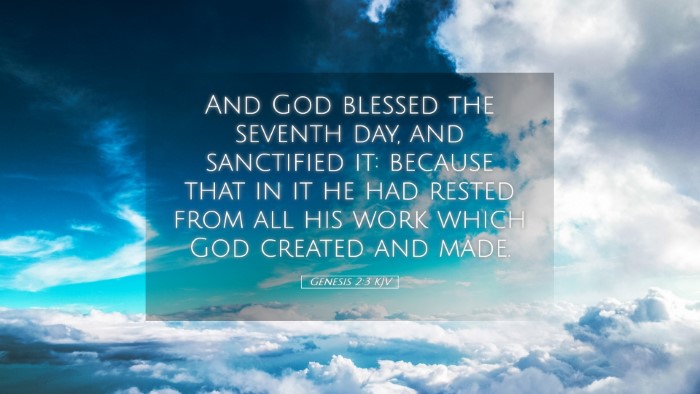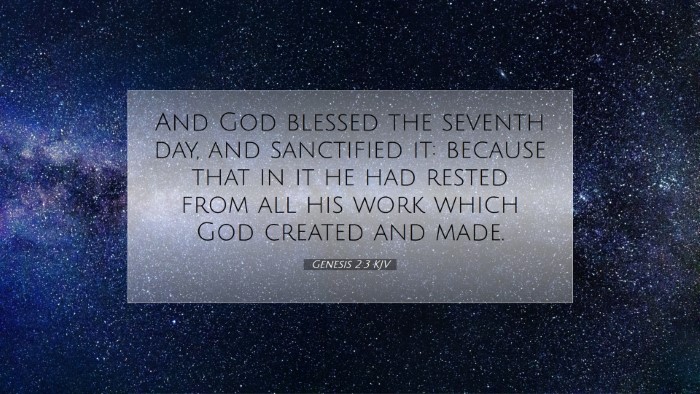Commentary on Genesis 2:3
Bible Verse: Genesis 2:3 - "And God blessed the seventh day, and sanctified it: because that in it he had rested from all his work which God created and made."
Introduction
The second chapter of Genesis encapsulates the creation narrative with a divine emphasis on rest. In Genesis 2:3, we see the culmination of God’s creative work; on the seventh day, He rested and sanctified the day. This verse not only highlights God's act of working but also introduces the concept of rest and blessing upon the Sabbath, which has profound implications for Jewish and Christian theology alike.
The Blessing of the Seventh Day
Matthew Henry’s Commentary: Matthew Henry notes that the act of blessing the seventh day signifies God’s approval and favor on this day. By resting, God exemplifies a pattern for humanity, offering them a rhythm of work and rest. The seventh day becomes a foundational aspect of holy time.
Albert Barnes’ Insights: Barnes elaborates on the significance of God's blessing, asserting that when God blesses a day, He sets it apart for a special purpose. This transcends mere physical rest, as it conveys a spiritual significance that invites humanity into communion with their Creator. It is a day to be observed with reverence and recognition of God’s creative prowess.
The Sanctification of the Day
Adam Clarke’s Observation: Clarke highlights the act of sanctification, indicating that God did not just rest; He also set apart this day for a holy purpose. The sanctification of the seventh day is a divine ordinance, establishing a permanent institution meant to lead humanity toward worship and a cessation from ordinary labor. Clarke emphasizes this as a critical aspect for understanding the sacredness attached to the Sabbath.
Theological Implications
- Creation and Divine Order: The rest God takes on the seventh day showcases the completion of His creative work. It implies a purposeful order in creation, affirming that God, after a period of intense creative activity, engaged in rest. This act creates a rhythm of time that is foundational for human existence.
- Rest as a Divine Principle: The concept of rest initiated by God reflects a divine principle that goes beyond the physical realm. It embodies the need for humanity to pause and reflect on the goodness of creation. The cessation of work is not merely for recovery but also serves as an opportunity for spiritual renewal.
- Anticipation of the New Creation: Many theologians see in this rest a foreshadowing of the eternal rest that believers will experience in the New Creation, as outlined in eschatological themes throughout scripture. The idea of rest is intimately associated with salvation and the completion of God's work in the hearts of His people.
Applications for Today
For pastors, students, and theologians, Genesis 2:3 invites reflection on the importance of the Sabbath in contemporary Christianity. Observing a day of rest can serve as a spiritual discipline that promotes well-being and divine focus. It encourages a communal aspect of faith where believers gather to worship, pray, and foster fellowship.
Spiritual Renewal: Just as God saw fit to rest and bless the seventh day, believers are reminded of the necessity of rest in their spiritual journeys. The practice of sabbatical rest allows for a more profound relationship with God, reflection on His creation, and spiritual restoration.
Worship Through Rest: The sanctification of the seventh day implies that rest itself can be an act of worship. The disciplined cessation from labor brings a believer's attention back to God, thus transforming the day into one of holy significance. This practice encourages theological reflection and enhances the understanding of God’s presence in the world.
Conclusion
In Genesis 2:3, the dual themes of blessing and sanctification present a rich continuum extending from creation to contemporary faith practices. The insights from Matthew Henry, Albert Barnes, and Adam Clarke provide a foundational exegesis that informs our understanding of rest as not only a physical necessity but also as a deep spiritual call. The day set apart by God anchors believers in a rhythm pleasing to Him—one that encompasses work, rest, and worship.


